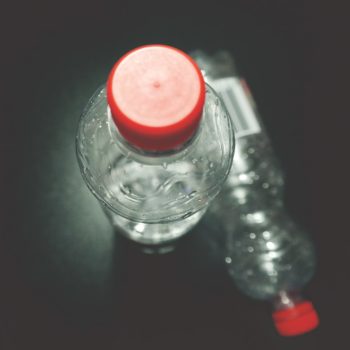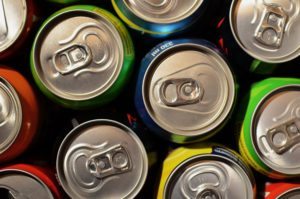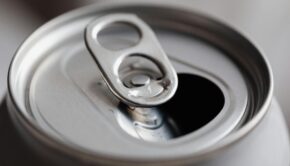Message in a bottle!

Awareness of climate change and the fragile world we live in is something that could always be a little better, but the 20th anniversary of the non-profit Repak recently proved that Ireland is punching above its weight. Doug Whelan reports
18 October 2017
20 years of Repak in numbers:
Since it was first established in 1997, Repak has achieved the following:
126 landfills in Ireland, reduced to four
10m tonnes of packaging diverted from landfill
8 billion plastic bottles
7 billion glass bottles
6 billion aluminium cans
4 million tonnes of paper and cardboard

At the forthcoming Repak Pakman Awards, 2017 will be the inaugural year of the Innovation in Waste Management Award, judged by Dragon’s Den Star and business woman, Chanelle McCoy
A recent event at Dublin’s Science Gallery on the grounds of Trinity College marked the 20th anniversary of Repak, Ireland’s non-profit recycling scheme. Established in 1997 on the back of an EU directive stating that any company which contributes waste packaging into its country’s waste collection system, must contribute to the cost of that packaging being reclaimed, recycled or otherwise disposed of. The event, hosted by Jonathan McRea, saw Repak CEO Seamus Clancy outline the organisation’s aims, achievements and ambitions, while Indaver MD John Aherne broke down some of the policy and legislative facts surrounding the issue.
Finally, environmental scientist Tara Shine took to the stage to drive home just why a robust and functional recycling system, both national and international, is vital to safeguard the future of the planet.
And it is the very future of the planet that is at stake!
Trends
That may be a dramatic statement, but it’s true. The way we’re going, population and consumption wise, recycling is going to have to go into overdrive in the next 20 years, if the successful efforts of the past 20 years are to be worth it. And the numbers, when laid out by the speakers at the event, would start to scare you.
The amount of waste packaging generated per capita is closely tied to a country’s economic situation. Researchers observed that during the ‘Celtic Tiger’ years, Ireland was producing around 245kg per head, per year. Disposable income and rampant consumer culture contribute to this level.
After the crash, Clancy told the assembled audience at the Science Gallery, that number dropped to around 80kg per year. “Repak,” he said, “is a great barometer of where the economy is going. This year we’ve gone back up and we’re generating around 220kg per head.”
Meanwhile, Ireland’s population is growing. It’s estimated that Ireland’s population by 2037 will be approximately 5.6m, while the population of the world will, by 2050, be around 9 billion. “By then, we will need to be producing 40% more food than we are now, with reduced resources,” Clancy said. “We’ll have less land, less fuel and less resources.
“There is no vision for Ireland’s recycling future on this front,” he said, “other than ‘keep going’.”
Keep going
That might sound doom and gloom, and there is an argument to be made that the ‘doom and gloom’ talk is exactly what’s needed in 2017, to get people’s attention! However, Clancy was happy to report that Ireland has – surprise, surprise – been punching above its weight over those 20 years, when it comes to public compliance with recycling, in terms of EU targets and requirements.
The EU directive that governs waste recycling states that any business with a turnover of more than €1m, and/or generates more than 10 tonnes of waste per year, is obliged to be a member of Repak (the group has more than 2,200 members, according to Clancy). They then are charged fees based on the amount they generate.
“We’re all members,” Clancy says sagely.
“It’s a fair sharing of the responsibility. The more you create, the more you pay, and Repak takes that money and uses it to support the entire recycling and recovery operation in Ireland,” he says.
There is one minor issue when it comes to compliance, however, and it’s an issue that has already been affecting the retail industry: online shopping.
Online shopping

Since it was first established in 1997, Repak has diverted 6 billion aluminium cans from landfill
As we see regularly in Visa’s Consumer Spending Index, online shopping has been steadily increasing month by month, period by period, for several years now. With Christmas approaching once again, sites like Amazon, the daddy of them all, will be preparing for another bumper year. But online shopping, while convenient, produces massive amounts of recycling waste, and this is something Repak has an issue with.
“We have 2,200 members,” Clancy says again, “contributing €25m per year, and they’re very conscious of this fact. Because of that, we at Repak have to deal with those outside the net who do not comply. That is online shopping, coming in from players outside Ireland who have no responsibility.
“Amazon contributes €0 towards recycling initiatives this country,” says Clancy, “but based on our study, it and other online retailers introduce more than 7,000 tonnes of plastic waste into the system.”
That seems highly lob-sided, and if online shopping continues to grow, as it most certainly will, it seems likely that effort may eventually be made to force the big players to play ball with organisations like Repak.
Changing our ways
John Ahern, MD of Indaver was present at the occasion and spoke after Clancy. He spoke of the Flanders region in Belgium, which has long been held up as a shining example all recycling-intent countries should follow. In 1998, just as the EU-wide directives on recycling were being introduced, Flanders was already recycling a massive 70% of its municipal waste. “That’s a target the rest of Europe is aspiring to today,” he said, “for the future. That’s an area the size of Munster, with a population of 6m.
“In that kind of region,” he said, “waste management mattered, no matter the regulations, because if it wasn’t managed well, it would be a big problem.
“In Ireland we’ve had the space so we’re lucky,” he said, “but as Seamus pointed out, the population is growing so it will be vital in the coming years to take the same approach as Flanders.”
We have come a long way, Ahern says. The change has come in many forms, including diverting waste away from landfill. Ireland has reduced its number of waste management plans (ie comprehensive policies) from 13 down to three – one for the south, the east and the west of the country. Furthermore, Northern Ireland has its
own waste management plans.
“A further reduction I’d like to see,” Ahern added, “is for there to be one waste management plan for the whole Island of Ireland. Waste and pollution has no borders, after all.”
Message in a bottle
Finally speaking on the day was environmental scientist Tara Shine, who emphasised the important of recycling from a scientific point of view. “We only have one planet,” she said, “all our oceans are connected, so it’s important that we know where the waste is going globally.”
Ireland meeting its recycling targets is good, Shine said, but the future is about looking at what we produce and what we consume, and how we can minimise the waste we create. “Every water bottle you buy,” she said dramatically, “whether you use it for ten minutes or two days; once you’re done with it, that’s it. It’s out there for upwards of a thousand years!
“That’s why the focus now is on sustainability for the whole word, not just Ireland,” she said. “It’s about recycling and reducing, but it’s about not creating waste. How can we do that? That’s the future.”



 Print
Print



Fans 0
Followers